
2 Apr, 2017
Return journey to Uzbekistan, Heart of the Silk Road
For many years, promoting the Silk Road has been one of the priority projects of the UN World Tourism Organisation, which describes it thus:
“Acclaimed as the ‘greatest route in the history of mankind’, the ancient Silk Road formed the first bridge between the East and the West and was an important vehicle for trade between the ancient empires of China, Central and Western Asia, the Indian sub-continent and Rome. As routes of integration, exchange and dialogue, the Silk Road contributed greatly to the common prosperity and development of humankind for almost two millennia.
“With its richly diverse cultural heritage and its wealth of natural tourism attractions spanning across thousands of kilometers of ancient routes, the Silk Road today offers visitors the opportunity to experience a unique network of destinations linked by a shared history. By venturing along the ancient Silk Road, tourists can walk in the footsteps of famed explorers such as Alexander the Great and Marco Polo.”
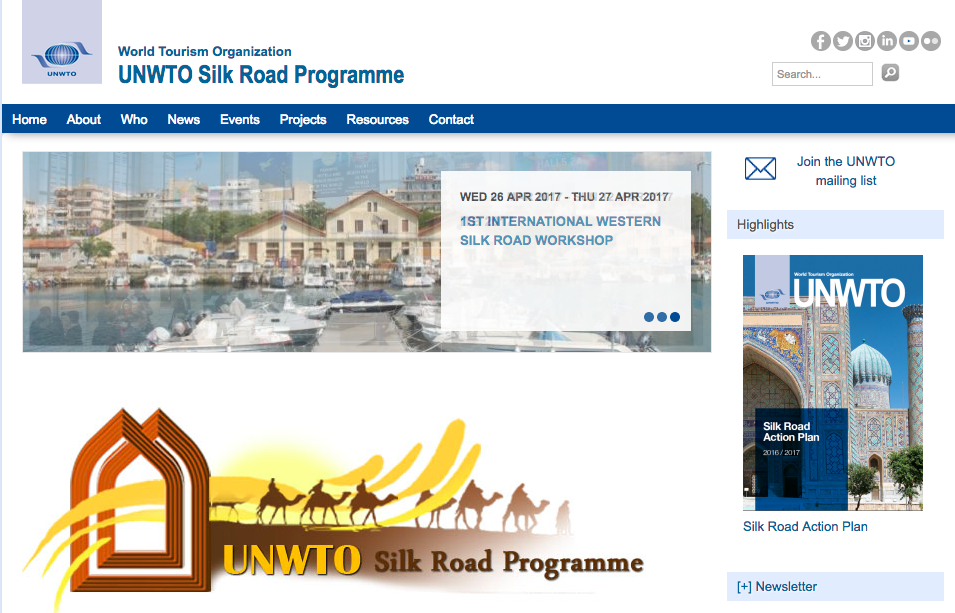
On 8-9 October 2010, over 250 delegates from more than 25 countries met in the historic Registan Square, Samarkand, Uzbekistan, to discuss opportunities for driving tourism development through strengthening the Silk Road brand. This editor was the only journalist from Asia invited to cover that historic meeting, organised by the government of Uzbekistan and the UNWTO.
Of the seven development priorities agreed during the meeting, Priority Number One was this: “Conduct a comprehensive Silk Road brand analysis, identifying key market segments, perception and values.”
In a small effort to attain that objective, this editor (+ my wife) returned to Uzbekistan for a second visit to see how much progress has been made. This time, I went as a regular tourist, paying my own way.
I came away with many impressions. But perhaps far more important than my views are the perceptions and values of my travelling companions who included well-travelled lawyers, businessmen, diplomats, academics and more. We were part of a Cultural Study Tour organised between March 19-28 by the Siam Society, one of Thailand’s leading NGOs devoted to enhancing global peace and friendship via culture and heritage.
The UNWTO Silk Road Programme claims to represent the interests of all stakeholders along the Silk Road. But the “group of experts” on the UNWTO Silk Road Task Force includes representatives only from UNWTO Member States, UN agencies, the private sector, investment institutions, infrastructure and regional development.
Missing entirely in that “group of experts” are the most important “stakeholders” — the tourists themselves.
So, in line with the iconoclastic travel journalism that has become my hallmark over the years, I filled the gap. I interviewed 10 of the 24 illustrious members of the Siam Society group with a simple two-part query: “What did you like most about Uzbekistan? What were your key impressions and takeaways?”
Their responses were refreshingly honest and frank, unencumbered by diplomatic niceties and far more revealing than any number of verbose consultancy reports and boring ministerial speeches. My thanks to them all for their comments. Here we go…
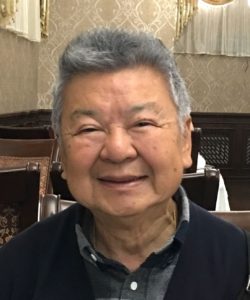 |
Mr. SURAPHOL VONGVADHANAROJ, 71, THAI – The people are very friendly, polite and dress very well, better than other countries. In general the cities and towns are very clean and well organised, better than I expected. The mosques are not exactly the same but more or less the same. I don’t have the history and the background to appreciate them better. A few years ago, I took the Moscow-Beijing Trans Siberian Express. I had no idea what to expect at first but (after the trip) I understood the culture and the history. It is the same here, I did not know they had such a rich history. I like eating fruits and vegetables, and was very happy to see that they have very good beans, pumpkins, tomatoes. It is a nice country and the people seem to have a good standard of living. I believe these resource-rich countries will come up strongly in future, once the infrastructure is built.
|
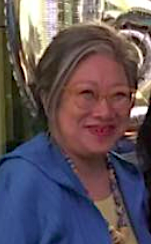 |
Mrs PIMPRAPHAI BISALPUTRA, 61, THAI — What impressed me most was the way they have made the best use of their heritage, living with it, restoring it, as people and as communities. The food was super. We had lots of soup, such as bean soup and potato soup. There was tremendous variety, none of it was the same. My favourite place was Khiva, a nice small community that takes the world back to the age when life was peaceful and family oriented. I personally don’t like big cities. I also saw a lot of similarities with China where development is by proper planning and checking. The conservation of heritage sites has turned out quite well unlike Thailand where things are quite horrid. Nice to see discipline within the communities which has kept a check on development. It is apparent that nobody can do whatever they want. There is no explosive imbalance of capital that ruins the spirit of a city for the sake of development. It also made me wonder what life was like in those days.
|
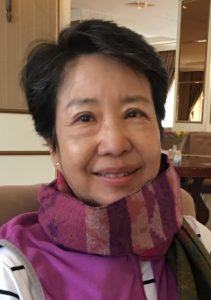 |
Mrs PURANEE CHAIYAWAT, 61, THAI — Most appreciative of the people, approaching us, wanting to take photographs. Very genuine and sincere, not fake. They were happy to meet and welcome and foreigners, excited to meet with us in a very genuine way, and practise their English. The country and cities were very clean and even in front of people’s homes, everywhere it had been swept clean. I found the mosques and Muslim culture very exciting to see beautiful things everywhere in the midst of culture which is very difficult to see anywhere else. I also enjoyed the food but felt it needed more diversity. I hope they can maintain all this. I fear that if the country develops more and more, they will become fake people. The more the economy opens and development takes place, (countries and people) always become fake. They start to compare who is richer, creating divisions within societies.
|
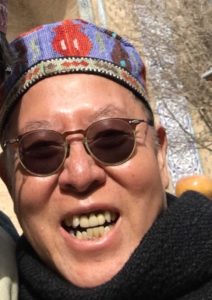 |
Mr. JEFFERY SNG, 65, SINGAPOREAN — I enjoyed seeing their lavish public places. The government seems to do a lot for the people. I really enjoyed the cities and the parks and the places available for leisure, to walk around and the monuments to see. They live in the midst of their history, which is very unique. Being from the private sector, we can’t provide such large public places, but here they can and the quality of life is very good. I also got a sense of world history. People are cheerful and well dressed, they have a high sense of self respect and dignity. Everybody looks to be well taken care of. I don’t get a sense of xenophobia. They seem to love foreigners, they always want to come up and greet you and take pictures with you. It was a very unusual place to come to.
|
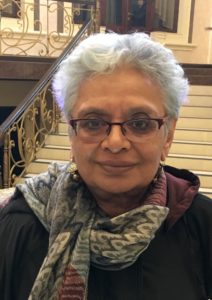 |
Mrs ANUPAMA RAO SINGH, 66, INDIAN — I thought the Necropolis (in Samarkand) was the highlight of the visit. It had a sense of character, atmosphere and interpretation, all pulled together very well. Impressed by the warmth and friendliness and openness of the people from all walks of life. The food was so-so because I like spicy food, but it’s generally not a problem. This is my first time here and it turned out to be beyond my expectations. Given the closeness in culture with India, especially the Mughal architecture, it is obvious that there is a strong connection, and perhaps an opportunity to develop closer relations than we have. I loved learning more about the background of Mughal history and its links to 4.5 centuries of Indian history. I also learned about Amir Temur and was intrigued by the difference between the high esteem he is held here and the way he is seen elsewhere. The Ulugh Beg observatory was phenomenal. It is amazing how Ulugh Beg could calculate time within only a few seconds, in an era long before all of today’s technology.
|
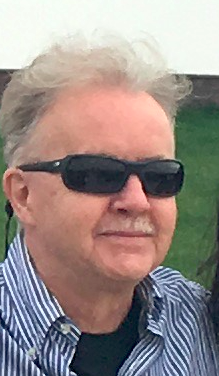 |
Mr. DAVID OWENS, 63, CANADIAN – It was great opportunity to interact with the Uzbek people. Very impressed by the warmth and friendliness and lack of corruption by the modern pop culture of the West. Happy to see the strong tradition maintained by the younger generation. It was a contrast to see the modern nature of Tashkent and the poor condition of the countryside. They also seem to have a good political system, judging but the level of comfort and contentment that seems apparent among the people. |
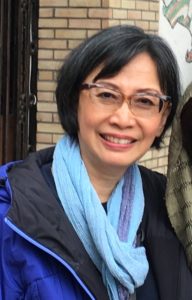 |
Mrs KATHLEEN OWENS, 63, CANADIAN – I was very impressed by the scale of monuments and architecture. Surprised by the people and their refreshingly curious attitude and their sense of innocence when they interact with visitors. I haven’t seen that in any country for a long time. They seem genuinely happy. I had read so much about the Silk Road, and I could only imagine what it must have been like for Alexander the Great to be here. Samarkand brought all that history alive. I was also curious to see what this Islamic country is like and to see how they practise and whether they have any restrictions. I was happy to see a country in which people can freely practise their faith and that it does not dominate their lives. The scale of the monuments is astounding. Just imagining how they must have been built them, I must say it does make you humble.
|
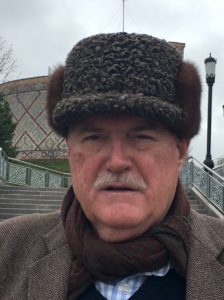 |
Mr. RICHARD ELLIS, 65, UK – It is not what I expected. On the human side, I am surprised by the good condition of the people and how they present themselves, and have a general sense of national identity which has been lost in the West. On the cultural side, the government has obviously dedicated considerable resources to the preservation of natural heritage. Whether that is for cultural reasons or tourism reasons I don’t know but it will be a big challenge to preserve it. At the scientific level, it was absolutely extraordinary to see that they had such an advanced level of sciences, and that their scientists had found ways of calculating the earth’s longitude long before anyone in the West did. I was also happy to see that in spite of being an Islamic country, the people are not burdened by outward display of any forms of extremism.
|
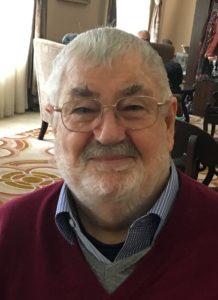 |
Mr. BRIAN SHAW, 81, UK — There were two things I really liked. One was the Nowruz celebration in Khiva with its friendly atmosphere and strong sense of community. Also liked the vibrancy of Samarkand which is not what I had expected. I enjoyed the local products market in Samarkand. The produce underlined the agricultural basis of the people’s livelihoods. I had expected more desert and sandy areas, maybe higher sand dunes, perhaps due to my early impressions of the Silk Road. I was also impressed by the High Speed Train which was very good. This is an interesting place for experienced travellers. I had also expected to see more of an Islamic revival with more working mosques and a more religious scene.
|
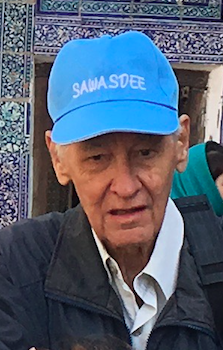 |
Mr. JOHN KNODEL, 76, US — I like the fact that it is not overrun by tourists. It’s rather backward. Our tours concentrated only on religious buildings. Perhaps because it was a cultural study trip, but I still would have liked to see some natural environment. I liked very much the festivities of the Nowruz holiday. That was really fun. I also liked that we had decent accommodation and the guide was excellent. But I would like to see improvement in the quality of the bus transport, especially the steps to board and exit. |
The entire group
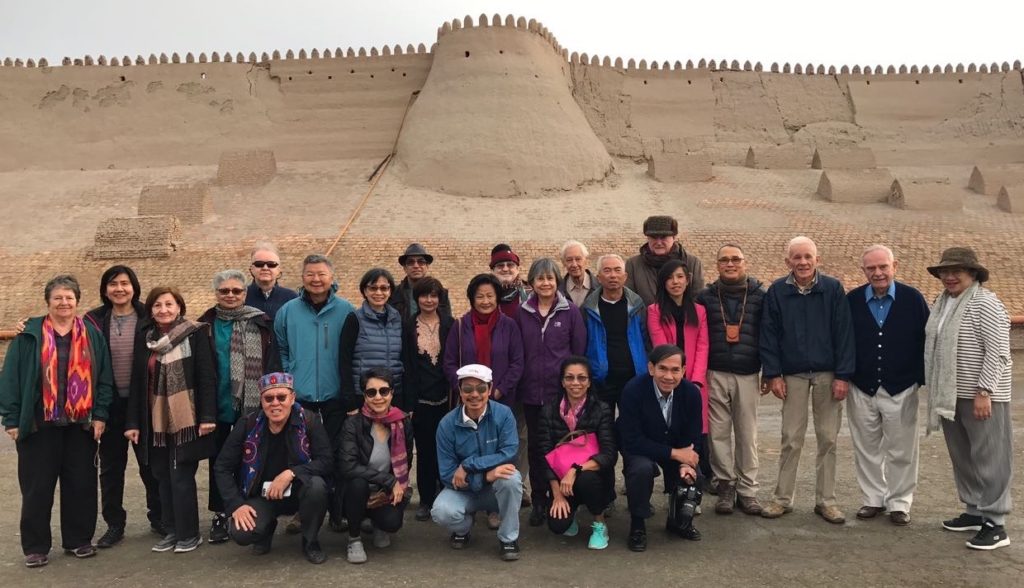



Liked this article? Share it!